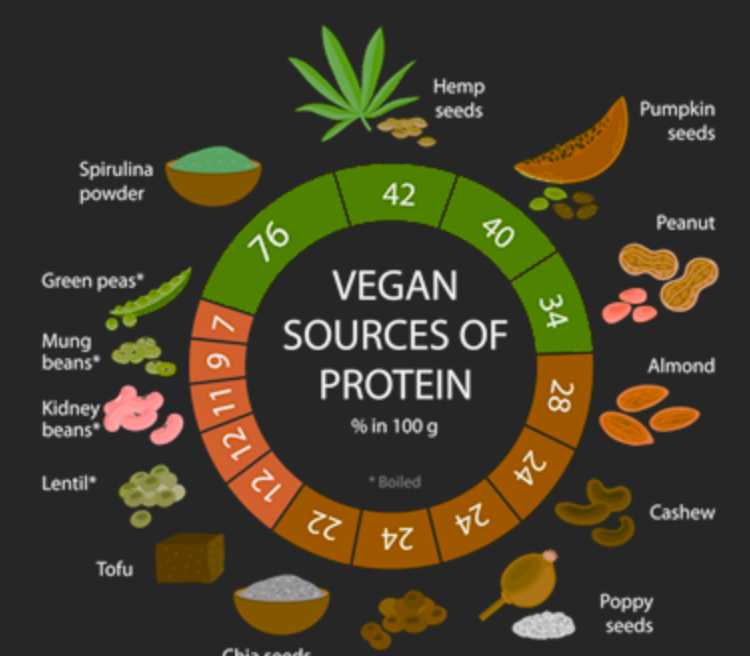
What is a Plant-Based Diet? Will it Really Help Me Live Longer?
There is no question that plant-based diets have been getting a lot of buzz. First, streaming services are full of documentaries detailing the negative consequences of eating meat. As people discover these films, the number of Americans going vegan continues to grow. Animal rights activists are vocal proponents of veganism. There is also a growing general awareness of animal agriculture’s negative environmental impact. It is responsible for 18% of all greenhouse gas emissions, which is more than all transportation emissions combined.
But perhaps the most important reasons for the increased interest in plant-based diets are the proliferation of studies showing that plant-based diets can help us lose weight, live longer, and reduce, or even eliminate, the risk of certain diseases. Plant-based diets have been associated with a lower risk of chronic diseases such as heart disease, diabetes, and certain cancers. A 10-year-long study of more than 300,000 individuals, published in 2020 found that the more fruits and vegetable servings eaten per day, the lower the risk of developing type II diabetes. Since heart disease, cancer and diabetes are the conditions that contribute to our mortality, it’s easy to see how lowering their risk could lead to a longer life. In his extraordinarily well-researched book, How Not to Die (among others), Dr. Michael Greger suggests that a fully plant-based diet could reverse and eliminate the risk of most diseases.
Why are plant-based foods so good for us?
Here, is what the research shows:
Heart Health: Plant-based diets, particularly those rich in fruits, vegetables, whole grains, and legumes, have been linked to improved heart health, including lower cholesterol levels and blood pressure.
Inflammation Reduction: Plant-based diets are often anti-inflammatory, and chronic inflammation is linked to various diseases. By reducing inflammation, a plant-based diet may contribute to better health outcomes.
Weight Management: Plant-based diets are generally associated with lower calorie density and may support weight management. Maintaining a healthy weight is a key factor in preventing obesity-related diseases and promoting overall well-being.
Antioxidant Protection: Plant foods are rich in antioxidants, which help protect cells from damage caused by free radicals. This protection may contribute to overall cellular health and potentially impact aging processes.
Fiber Content: Plant-based diets are typically high in dietary fiber, which is associated with digestive health, satiety, and a reduced risk of certain diseases.
What exactly is a plant-based diet?
There is more than one answer to this question, but here are the main eating styles, from most stringent to least, that can be considered “plant-based.”
Vegan: This is a diet that consists of plant-based foods only and excludes all animal-related foods like, meat, dairy, eggs, and often honey. Many who follow this lifestyle do so for ethical or environmental as well as health reasons. They also adopt other lifestyle modifications (ex. no leather, wool or fur) in addition to the dietary changes.
Vegetarian: Also known as ovo-lactovegetarian, this diet includes all plant-based foods, as well as allowing eggs and dairy.
Pescatarian: This is a largely vegetarian diet that also includes seafood.
Flexetarian: This is a broad term used by those who primarily follow a vegetarian or plant-based diet, but allow for some meat, dairy, and seafood on occasion.
Do I need to be vegan to get the health benefits of a plant-based diet?
No! Although most of the research indicates that the higher you are on the plant-based spectrum, the more extraordinary the health benefits will be, any change towards plant-based will make you healthier. Some people start at flexitarian as a way to transition to a vegan diet. Others simply use their raised consciousness to make better plant-based food choices. As a matter of fact, making gradual changes may be key to long-term success. An abrupt shift to a vegan diet can be hard on your digestive system and can discourage you from moving forward.

What is the best way to get started?
Try any of the ideas below to get some plant-based health benefits, and see where it takes you.
- Educate Yourself: Learn about plant-based nutrition to understand which foods can provide essential nutrients. Familiarize yourself with plant-based protein sources (see the chart above), calcium-rich foods, and sources of vitamins like B12.
- Try Some Meatless Meals: Begin by incorporating meatless meals into your routine. Choose one or two days per week to have plant-based meals, gradually increasing the frequency over time.
- Transition Your Favorite Meals: Modify your favorite meals by replacing animal products with plant-based alternatives. For example, use plant-based protein sources like tofu, tempeh, or legumes in place of meat.
- Gradual Elimination: Slowly reduce the consumption of animal products. You might start by eliminating red meat, then poultry, and eventually fish. This gradual approach can make the adjustment more manageable.
- Discover Plant-Based Snacks: Identify plant-based snacks that you enjoy. This could include fresh fruits, nuts, seeds, veggie sticks with hummus, or whole-grain crackers with plant-based spreads.
- Explore Plant-Based Alternatives: Try plant-based alternatives to dairy products, such as almond milk or soy yogurt. There are also plant-based alternatives for burgers, sausages, and other meat products that you can incorporate into your meals.
What should I look out for when trying a more plant-based diet?
Ensure you are getting enough protein, as some plant-based diets may be lower in protein compared to diets that include animal products. Include sources such as beans, lentils, tofu, tempeh, nuts, seeds, and whole grains.
Pay attention to vitamin B12 and iron intake. These nutrients are commonly found in animal products, so consider fortified foods or supplements, especially for B12. Iron from plant sources (non-heme iron) is better absorbed when consumed with vitamin C-rich foods. Dr. Greger suggests that B12 may be one supplement necessary for those on a plat-based diet.
Make sure you cover your calcium needs if you are going dairy-free, as dairy products are often a major source for many people. Plant-based sources of calcium include fortified plant milks, tofu, leafy green vegetables, and nuts.
Aim for a variety of foods to ensure you are getting a broad range of nutrients. Include different fruits, vegetables, whole grains, legumes, nuts, and seeds in your diet.
Listen to Your Body. Plant-based foods may be more gas-inducing than the foods you are used to eating. You may also experience some fatigue if you are not getting enough nutrients. If you experience any adverse effects, consult with a healthcare professional.
Watch out for over-processing. There are a wide variety of plant-based meat substitutes available at the supermarket. However, there may be a lot of processing involved in turning something like soy protein into something that resembles a burger. Check package labels for additive lists.
The Bottom Line on Plant-Based Diets
There is no question that plant-based diets have huge health benefits, and you can get some of those benefits by simply incorporating more plant-based foods into your diet. Most people report feeling more energized and achieving quicker weight-loss by eating more plant-based foods. And many report that once they take the first steps, they naturally begin to lose some interest in meat and dairy products!
At Amaze we want to help you get healthy and stay healthy. And of course, we’re always here to help.